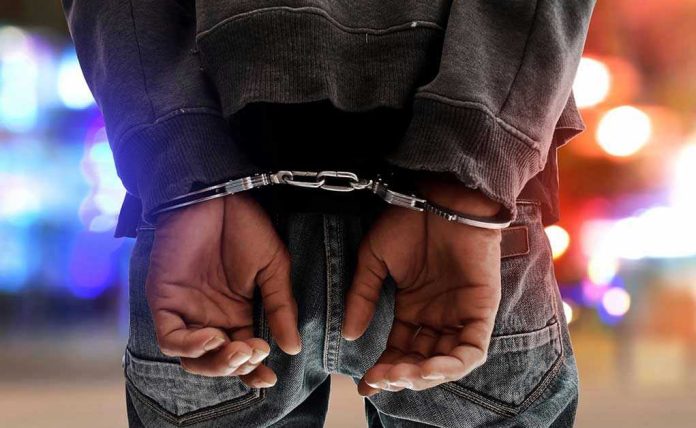
When a well-known TV actor is arrested for spraying someone with a garden hose during a neighborhood dispute, it exposes how quickly everyday situations can spiral into legal battles under today’s climate of surveillance and hypersensitivity.
Story Snapshot
- Raymond Cruz, famed for law enforcement roles, was arrested for misdemeanor battery in Los Angeles after a simple parking dispute escalated.
- This is Cruz’s first-ever arrest, despite decades spent portraying both criminals and police officers on television.
- The incident highlights growing tensions over privacy, recording devices, and the criminalization of minor neighborhood conflicts.
- Media scrutiny and Cruz’s celebrity status turned a mundane disagreement into a public spectacle with legal consequences.
Actor Known for Upholding the Law Faces Arrest Over Minor Dispute
Raymond Cruz, celebrated for his roles as both criminal and cop on shows like Breaking Bad and The Closer, found himself on the opposite side of the law on September 8, 2025. The incident began as Cruz washed his car at his Los Angeles home, only to become embroiled in a verbal conflict with three women over a closely parked minivan. The dispute intensified when the women began recording Cruz with a phone, prompting him to allegedly spray one of them with a garden hose—a move that resulted in a misdemeanor battery charge. The episode, while minor and nonviolent, led to Cruz’s first-ever arrest, a sharp contrast to his clean public image and history of law-abiding behavior.
Cruz’s background as a TV lawman only amplifies the irony of the situation. For decades, he has cultivated a reputation as a private, upstanding citizen, never previously facing legal trouble. This reputation, coupled with his high-profile characters, has now been called into question—not because of a violent outburst, but a neighborhood squabble that escalated into a court case. The event unfolded in a city notorious for its parking headaches and privacy disputes, where tensions often run high and even a minor confrontation can rapidly become a legal issue, especially when recording devices are involved. The fact that Cruz’s arrest arose from such a trivial matter has fueled debate about the growing criminalization of everyday misunderstandings and the power of public scrutiny in the digital age.
Celebrity Status and Technology Escalate a Private Dispute
The Los Angeles Police Department processed Cruz on suspicion of misdemeanor battery, releasing him later the same day. His agent, Raphael Berko, and LAPD officials quickly issued statements emphasizing Cruz’s clean record and the minor nature of the incident. The complainants—three women claiming to be victims—have pressed the issue, resulting in a court date set for October 1, 2025. In an era where cell phone cameras are ever-present, these recording devices have become both a shield and a weapon in neighborhood disputes, influencing not only public perception but also legal outcomes. Cruz’s case is part of a broader trend where ordinary disagreements receive national attention and legal ramifications, especially when celebrities are involved.
The influence of celebrity status in legal matters cannot be underestimated. Cruz’s fame ensured that the incident was covered by major entertainment outlets, shifting what could have been a simple neighborhood resolution into a headline-grabbing legal drama. The LAPD, under intense public observation, must now balance fair treatment with the realities of media pressure. Meanwhile, the complainants’ decision to escalate the situation by filming Cruz and pursuing legal action demonstrates how technology and social dynamics can quickly transform privacy disputes into punitive confrontations. Such developments raise questions about personal boundaries, community civility, and the proportionality of criminal charges for minor altercations.
Legal and Social Consequences: A Test of Proportionality
In the short term, Cruz faces media scrutiny, potential reputational harm, and the burden of legal proceedings. For the entertainment industry, the incident stirs conversations about the challenges public figures face regarding privacy and the risks of constant surveillance. Long-term consequences appear limited: if Cruz is acquitted, the episode will likely fade from public memory; if convicted, he may see some impact on his future roles, but the nonviolent and minor nature of the charge suggests any penalty would be minimal. More broadly, the case illustrates how quickly modern society resorts to criminal proceedings for what were once considered simple neighborly disputes. It also highlights the risks of government overreach and the erosion of community-based problem-solving—a concern for anyone who values personal responsibility and common sense over legal escalation.
REPORT: ‘Breaking Bad’ Star Raymond Cruz Arrested For Dumbest Reason https://t.co/uRZo85c5KT
— Daily Caller (@DailyCaller) September 9, 2025
Expert commentary has focused on the contrast between Cruz’s public persona and the trivial basis for his arrest. Entertainment analysts note the rarity of such charges against actors who make their name portraying law enforcement, while legal experts emphasize that a first offense of this type is unlikely to result in significant punishment. The facts of the case have remained consistent across reputable news sources, with no meaningful contradictions or uncertainties reported. Ultimately, the Cruz incident stands as a cautionary tale about the pitfalls of today’s hyper-litigious and surveillance-driven culture, where even the most minor incidents can become legal flashpoints and media sensations.
Sources:
Breaking Bad Raymond Cruz Arrested
Who Did Raymond Cruz Play in Breaking Bad? TV Star’s Recent Arrest Explored
Breaking Bad Star Arrested for Allegedly Spraying Someone With a Garden Hose



